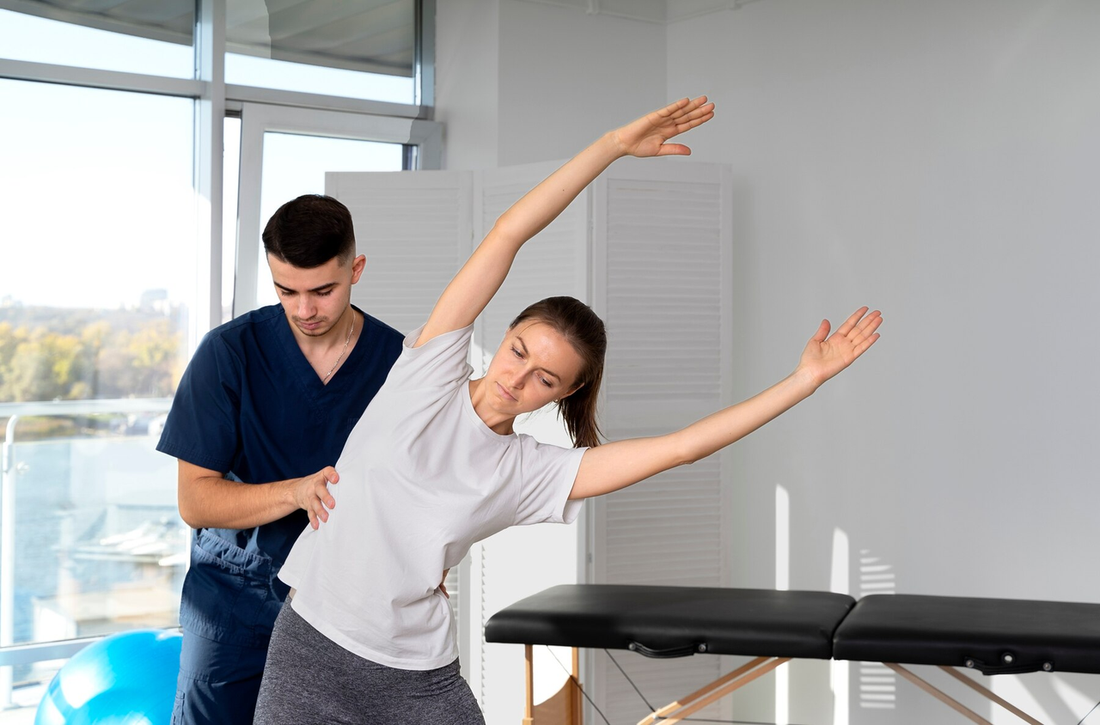Physical therapy is often associated with treating injuries and improving physical function, but its benefits extend far beyond the physical realm. The intersection of physical therapy and mental health is an area gaining increased attention, as research continues to reveal the profound impact physical activity and rehabilitation can have on mental well-being. This article delves into how physical therapy can support mental health, the advantages of a holistic approach, and tips for integrating physical and mental health strategies into your routine.
-
Understanding the Connection:
The mind and body are deeply interconnected, and physical therapy can influence mental health in several ways:
-
Exercise and Endorphins: Physical activity promotes the release of endorphins, the body's natural mood elevators, which can help alleviate symptoms of depression and anxiety.
-
Stress Reduction: Engaging in physical therapy exercises can reduce stress by lowering cortisol levels and providing a constructive outlet for tension.
-
Improved Sleep: Regular physical activity can improve sleep patterns, which is crucial for mental health and overall well-being.
-
Increased Self-Efficacy: Successfully engaging in physical therapy can boost confidence and self-esteem, fostering a positive outlook on life.
-
Benefits of Physical Therapy for Mental Health:
Enhanced Mood and Energy Levels:
Regular participation in physical therapy can lead to improved mood and increased energy levels, helping individuals feel more positive and motivated.
Reduced Anxiety and Depression:
Physical therapy exercises can reduce symptoms of anxiety and depression by promoting relaxation, enhancing physical health, and providing a sense of accomplishment.
Better Coping Strategies:
Learning and mastering new exercises and techniques in physical therapy can equip individuals with better coping mechanisms for managing stress and emotional challenges.
Social Interaction:
Group physical therapy sessions or interactions with a therapist can provide social support, reducing feelings of isolation and loneliness.
-
Integrating Physical and Mental Health Approaches:
Holistic Assessment:
Physical therapists should conduct holistic assessments that consider both physical and mental health needs, ensuring a comprehensive approach to treatment.
Collaborative Care:
Collaboration between physical therapists, mental health professionals, and primary care providers can enhance treatment outcomes by addressing all aspects of a patient's health.
Mindfulness and Relaxation Techniques:
Incorporating mindfulness practices, such as deep breathing and meditation, into physical therapy sessions can enhance relaxation and mental well-being.
Education and Empowerment:
Educating patients about the connection between physical activity and mental health can empower them to take an active role in their recovery and overall well-being.
-
Practical Tips for Enhancing Physical and Mental Health:
Stay Active:
Engage in regular physical activity, whether through structured physical therapy sessions or other forms of exercise, to boost both physical and mental health.
Set Realistic Goals:
Set achievable goals and celebrate progress, no matter how small, to maintain motivation and a positive mindset.
Practice Self-Care:
Incorporate self-care practices, such as adequate rest, healthy eating, and relaxation techniques, into your daily routine to support overall well-being.
Seek Support:
Don't hesitate to seek support from mental health professionals, physical therapists, or support groups if you're struggling with physical or mental health challenges.
Stay Connected:
Maintain social connections and engage in activities that bring joy and fulfillment, as social interaction is crucial for mental health.
-
Success Stories:
Case 1: Overcoming Anxiety Through Physical Therapy:
John, a 35-year-old office worker, experienced severe anxiety and physical pain due to prolonged desk work. His physical therapist incorporated relaxation exercises, posture correction, and a gradual increase in physical activity into his treatment plan. Over time, John noticed significant improvements in his anxiety levels and physical discomfort, leading to a more balanced and fulfilling life.
Case 2: Combating Depression with Physical Activity:
Lisa, a 28-year-old student, struggled with depression following a sports injury. Her physical therapist designed a rehabilitation program that included strength training, aerobic exercises, and mindfulness practices. As Lisa progressed through her therapy, she found that her mood improved, and she regained a sense of purpose and confidence.
The intersection of physical therapy and mental health underscores the importance of a holistic approach to well-being. Physical therapy not only addresses physical impairments but also plays a vital role in enhancing mental health. By integrating physical activity, mindfulness, and collaborative care, individuals can achieve significant improvements in both physical and mental health, leading to a more balanced and fulfilling life. Embrace the comprehensive benefits of physical therapy to support your journey toward overall well-being.




